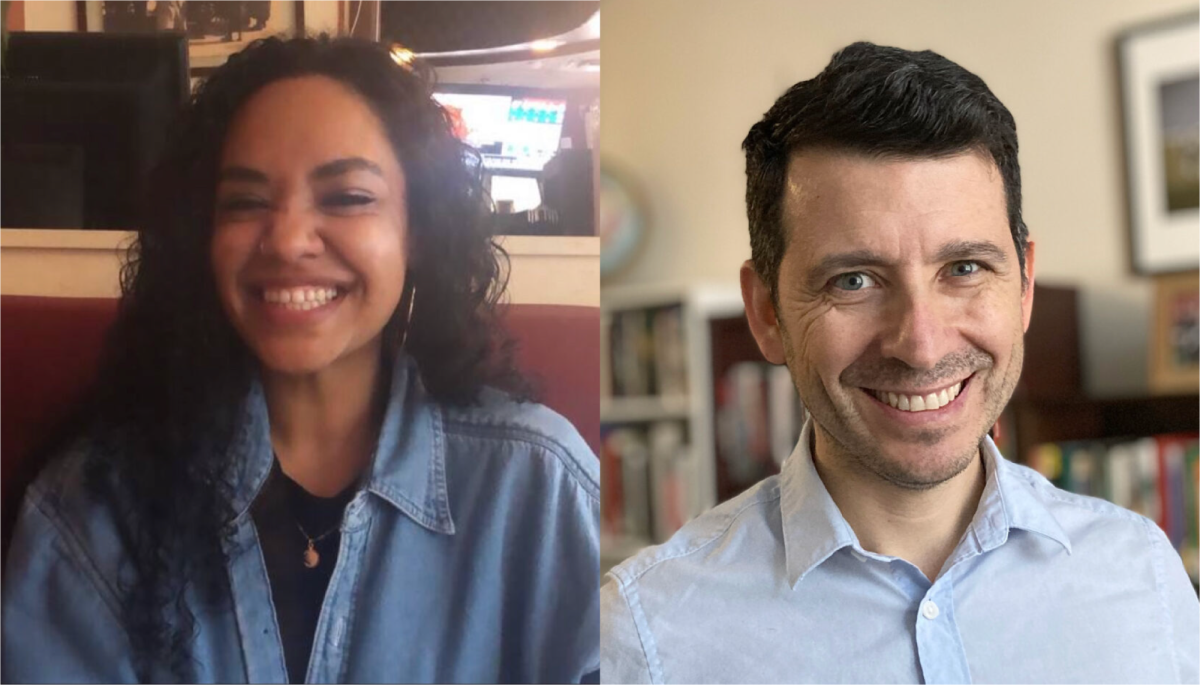In celebration of Latine Heritage Month, The Nubian Message spoke with NC State’s Latine faculty and staff about their journeys within their Latinidad.
Dr. Ebony Jones
Assistant Professor Dr. Ebony Jones teaches in the Department of History at NC State. Dr. Jones graduated from The University of New Mexico with a BA in history and sociology. She later attended New York University, where she earned her MA and Ph.D. in history, with a concentration on the African diaspora and the Caribbean.
Originally from Albuquerque, New Mexico, Dr. Jones’ personal identity inspired her journey into academica.
“I grew up in New Mexico. My mom’s family is from Mexico, but not Afro-Mexican. They’re Mexican, some of them indigenous, not of African descent. My dad is African American from Georgia, and growing up, I was a little confused at what I was,” Dr. Jones said
“I at one point thought I was like Afro-Chicano, but Chicana is a little bit more of a political identity. And then, as I got older, I recognized [the]anti-blackness. And so I think for me now, Latinidad is more of a personal identity. That is, I’m a Black and Mexican American.”
Latinidad is a Spanish term that ecompasses the shared characteristics of Latin American people. The word embodies the experiences of Latines from across the diaspora. However, as biracial woman, Dr. Jones says she doesn’t necessarily identify with every aspect of the Latine label.
“Part of that is just my own personal upbringing. But the more knowledge I know as a historian of what these categories actually mean.”
When talking about her experience as an undergraduate student, Dr. Jones said she “took a really non-traditional route to get here.” At the age of 18, Dr. Jones started as a licensed practical nurse.
“I thought I wanted to do medical school, but I was making decent money, and I was 18 years old, so I took nothing serious, to be quite honest – right? I was doing classes, but I was failing things like musical theater. Like things that should be easy. I lost the New Mexico lottery Scholarship, which paid for my undergrad.”
Dr. Jones moved to Philadelphia where she explored her mixed-race identity.
“I was outside of everything that I knew, and I was no longer just assumed to be mixed or just all Black. People would assume I spoke Spanish, but I couldn’t actually [speak] fluently, which then questioned my latinidad in many ways…I decided I no longer wanted to do nursing prep. I was already 27 years old, but I hadn’t finished my bachelor’s, so I moved back home from Philly, back in with my parents, and I started taking courses that I was intellectually interested in – the humanities.”
When discussing why she went into history, Dr. Jones stated, “I decided I wanted to [study] Black people, the diaspora. Black people in the Americas, beyond the United States, really interested me because I think it’s related to the fact that I am mixed. What are these other black experiences outside the United States?”
Dr. Frederico Freitas
Associate Professor Dr. Frederico Freitas also works in NC State’s Department of History. Dr. Freitas immigrated to the United States from São Paulo, Brazil, to pursue his MA and Ph.D. in history at Stanford University.
Dr. Freitas describes São Paulo to be a “…very cosmopolitan city. Historically, you have a lot of people moving in from different parts of the world, and you still have that. It’s kind of like a melting pot, for the lack of a better word. Everything is open 24/7. So it was like going out, having a social life, and being very active.”
Dr. Freitas also said his relationship with Brazil is “a very present relationship still. I have friends that have been friends for the last 30 years that I [still] see when I go there. And my family is there. I do research there. So it’s kind of like a very present-day thing. I lived in São Paulo my entire life, I traveled a lot through Brazil, through ports of South America, Europe, United States, before moving here, but I lived my entire life in São Paulo.”
During his time at the University of São Paulo, Dr Freitas was drawn to history saying, “I steered towards a group within my history department there. I went towards the group that was doing research in what they call Spanish America. That’s how they refer to most people who do research in Brazil. But there’s also a minority that does research in Spanish America or Europe.”
“So I got started working with them because I had interest. I had interest in Argentina, Chile, and Bolivia. So I started working with them, and coming to the United States, my plan was just to do my Ph.D. and go back to Brazil.”
When asked about his identity, Dr. Freitas stays true to his roots as a Brazilian.
“I definitely see myself in the United States, first and foremost, as Brazilian. And I think that it’s interesting, because to a lot of people from Latin America, they sort of become Latinos, Latinas when they move to the United States. Because when they are in their home countries, they are whatever identity exists there but it’s not as important as it is here.”
Dr. Freitas described his celebrations for this year’s Latine Heritage Month, saying, “They usually have, in downtown Apex, an event with vendors, and then I usually go there with my daughter and my wife. That’s what I usually do. And that’s fun. They have a lot of vendors selling a lot of different foods from different countries, and they have all these presentations, people dancing from different dance groups, and they have art and it’s fun. I can speak a little bit of Spanish with the people there.”
Dr. Jones and Dr. Freitas are just two of the many Latine professors, staff, faculty and students here at NC State, playing an integral part in our campus community.





